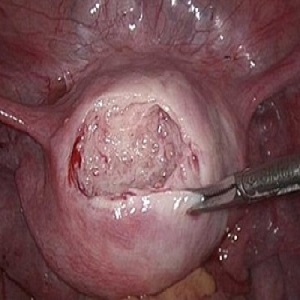
Recurrent miscarriages can be caused by a variety of reasons. One of the most prominent causes of recurrent miscarriage or fetal demise is due to insufficient blood flow. Some examples of the diseases that lead to Insufficient blood miscarriages include:
This article discusses how Antai Hospital’s specialized 3D-Laparoscopy can be used to effectively treat Uterine Fibroids, preventing recurrent miscarriages and fetal demise.
How do uterine fibroids/myoma affect pregnancy?
Uterine fibroids are benign growths of the uterus that can lead to miscarriages caused by blood flow insufficiency. These fibroids can range from small seedlings to bulky masses. They can be found growing in the:
- Perimetrium (subserous fibroids), treatable only with 3D Laparoscopy
- Myometrium (intramural fibroids), treatable with either 3D Laparoscopy or Hysteroscopy
- Endometrium (submucosal fibroids), treatable only with Hysteroscopy
During early pregnancy, the fibroids will affect the growth and development of the small embryo, because it:
- Causes obstruction of blood flow to the growing embryo
- Competes for nutrients with the growing embryo
- Distorts the volume of the uterus, by taking up more space, leaving little room for the embryo to grow healthily.
- The position of the fibroid (the closer towards the uterine cavity it is, the more dangerous it is for the fetus)
These factors combined showcases the “competition” that occurs between the fibroid and the growing fetus, where the fetus is getting insufficient nutrient and blood flow, leading to an early miscarriage or fetal demise.
It is very important to note that during diagnosis, one of the most distinct indicators of a potential threatened miscarriage caused by blood-insufficiency is:
- Steady and normal levels of Progesterone (Corpus luteum function is unaffected)
- Dropping levels of HCG or very little increments of HCG Levels (HCG levels no longer two-folding every 3 days, indicating the fetus is slowly dying)
This immediately indicates that there may be a growth that is competing with the fetus in terms of nutrients and blood flow.
Why is our Antai Laparoscopy unique and different than conventional Laparoscopy?
- We use a specialized 3-Dimensional Laparoscopy which significantly increase effectiveness and accuracy of treatment and diagnosis.
- We have an Autologous Blood Recovery System that allows us to re-use your own blood during surgery. This eliminates the use of donor-blood which brings compatibility issues and may carry infectious disease.
- Our specialized Laparoscopic B-Ultrasonography is done inside the pelvic cavity itself, which greatly increases the accuracy in diagnosis. It allows us to clearly observe the amount and the sizes of the fibroids in the pelvic cavity, if any.
- Our medical professionals are all highly trained and carry the Antai Philosophy of “protect the uterus, say no to castration”. They uphold our Antai values to the highest degree, treating all patients with the greatest care and responsibility.
What is a Laparoscopy?
A laparoscopy is a minimally invasive and advanced surgical procedure involving areas of the abdomen and pelvis cavities, with the use of a laparoscope. It is a medical equipment used in both the diagnosis and treatments of organic diseases outside of the uterine cavity, primarily involving diseases of the:
- The ovaries
- The fallopian tubes
- The exterior of the uterus
By opening a few small cuts in the abdomen via keyhole surgery, the laparoscope can enter the abdomen and pelvis cavity. With the help of a camera equipped on the laparoscope, it allows the surgeons to have direct visualization of the organs and tissues in the abdomen and pelvis i.e. the ovaries, the intestines, the fallopian tubes etc; and make accurate diagnosis and treatments required.
How does Antai treat the condition of Uterine Fibroids?
With the use of Antai’s specialized 3-D Laparoscopy, the fibroids are cut and removed carefully using surgical scissors, wherever they are found to be growing. Depending on the size of the fibroids, they may to be broken down into smaller pieces to be removed from the patient’s body. The surgery is minimally invasive and very little secondary damage is done to surrounding tissues.
What is Antai Laparoscopy’s 414 policy?
Due to the benign nature of the uterine fibroids and how damaging it is to the woman’s health, Antai Hospital is strongly against the removal of the uterus as a form of “treatment”. Instead, our Antai Laparoscopy is more than effective in removing the fibroids and preventing recurrent miscarriages.
Here at Antai, we uphold a strict “414 policy” when concerned with fibroid related disease. Please click here to read more about it.
Antai Hospital is committed in our mission of treating and preventing recurrent miscarriages. Our patented treatments and diagnostics in recurrent miscarriage have so far saved the lives of over 300-400 patients worldwide every year, with a success rate of 95%. We are also the only private hospital that offers a contractual treatment to patients with full refund guaranteed. Please contact us or arrange a consultation to find out more.